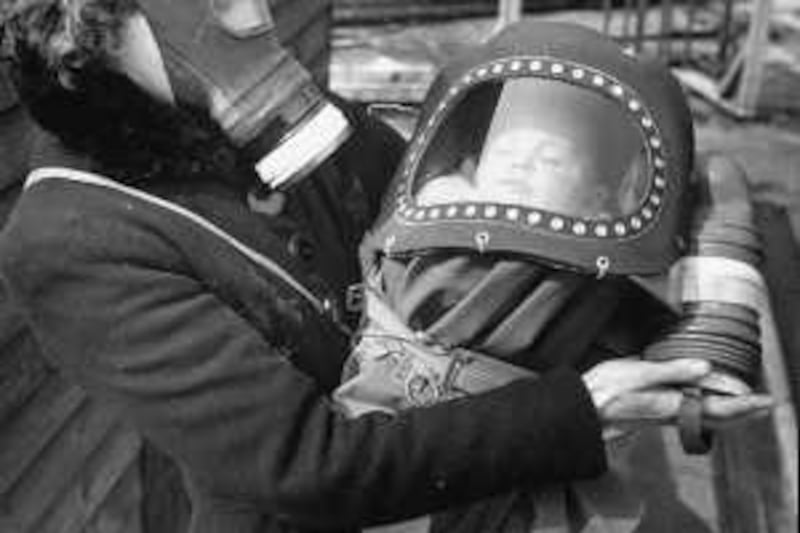The maintenance man has installed a cat in the water-tank room in our building. It has been living there for weeks. On the face of it, it is a benevolent act. The cat is ginger and fluffy and cute and he is saving it from life on the mean streets of the neighbourhood. At least, that's how we felt at first. Then our kitchen started to stink. The reek of animal urine invaded our nostrils. A sudden infestation of mice, perhaps. We scoured the kitchen for evidence, scrubbed every nook, sluiced every cranny. The smell lingered. Acrid, throat-burning, eye-watering, it grew worse by the day. And the smell was in the bathroom as well. What beast had suddenly invaded our flat? It turned out to be the cute and fluffy cat.
The labyrinthine structure of our building is partly to blame. The windows in the kitchen and the fan in the bathroom open on to an internal passage, which runs parallel to the lift shaft from the ground to the roof of the building. It is, I suppose, to enable air to circulate and prevent the bathroom in particular from fogging up. At the bottom of the space is the cat's lair - the water-tank room. Bad smells rise. With no other ventilation in such a cramped space, the fug of cat wafts into our flat. You can imagine what it is like trying to cook.
I sealed up the window in the kitchen with tape and covered the fan with a plastic bag. Sure enough, the smell vanished. We enjoyed unsullied air for a few days until the foulness started to seep in through the pores in the tape. So I asked the maintenance man to remove the cat. I explained the situation and he agreed to move it. But the cat and its smells stayed put. I phoned the building manager and asked him to tell the maintenance man - presumably his employee - to remove the cat. The animal remains to this day. The smell grows worse by the week.
I've become less tolerant of this kind of situation since Astrid was born. I used to brush them off or ignore them. But there is something primal about parental protectiveness. It can grip you like a fever. I feel no prick of conscience about turfing the cat out on to the streets. I don't care one jot that it will have to endure a life of brawls and torn ears and scratting in bins. I have even fantasised - in more desperate (and particularly pungent) moments - about poisoning it.
Becoming a parent has turned me into a vicarious hypochondriac as well as an imaginary cat killer. I immediately assume this smell is doing terrible things to Astrid's lungs. It might or might not be, but the internet is a fertile realm for such thoughts to grow. Try Googling "cat faeces baby". The results are toxic. They include things like toxoplasmosis and asthma. Parenthood kills perspective. It becomes hard to determine just how serious problems are. It makes it difficult to decide whether the cat is a danger or a nuisance. Either way, it would be easiest if it found a new home.
For 200 years, Humpty Dumpty has tumbled to the ground and shattered. His fate has been irrevocable and inevitable - until now. CBeebies, a children's television channel in the UK run by the BBC, has changed the words. The nursery rhyme's traditional closing lines are "All the king's horses, / And all the king's men, / Couldn't put Humpty together again". The last line was changed to "Couldn't make Humpty happy again". Apparently the ending was too glum.
The BBC said the words were changed once for "creative" reasons and the original version is on the CBeebies website. Politicians and journalists in the UK are irked by the alteration. It is, they say, another example of political correctness. Children need to be protected, but, they argue, the world should not and cannot be completely cleansed of badness. At least there was a reaction. At a time when, according to a survey by a charity called Booktrust, one fifth of parents in the UK do not read nursery rhymes to their children, it is good to know that people still care.
* Robert Carroll





